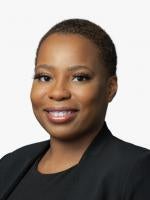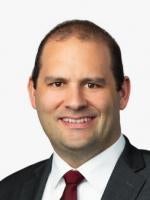On November 21, 2022, the US Department of Labor’s (DOL) Employee Benefits Security Administration (EBSA) released a proposed amendment and restatement of the Voluntary Fiduciary Correction Program (VFCP), along with a proposed amendment to the Prohibited Transaction Exemption (PTE) 2002-51.
The VFCP allows plan sponsors to voluntarily correct certain fiduciary breaches to avoid civil enforcement actions and civil penalties imposed under the Employee Retirement Income Security Act of 1974 (ERISA) and its accompanying regulations. The most relevant components of the proposed changes for plan sponsors relate to delinquent contributions of participant deferrals and loan repayments as these tend to occur more frequently than other issues corrected through the VFCP. Importantly, the proposed amended and restated VFCP would add a new self-correction feature, clarify existing transactions currently eligible for correction and simplify certain administrative or procedural requirements for participation in and correction of transactions under the VFCP. This would be the first time the DOL has allowed self-correction under VFCP. The proposed changes are intended to encourage greater VFCP participation by providing for more efficient and less costly corrections.
IN DEPTH
THE SELF-CORRECTION COMPONENT
The most significant and practical change affecting plan sponsors under the proposed changes to VFCP is the addition of a new Self-Correction Component (SC Component) for certain failures to timely transmit participant contributions and participant loan repayments to pension plans. The DOL notes that delinquent participant contributions are the type of transaction most commonly corrected under the VFCP. The new SC Component is intended to offer a more streamlined correction process that incentivizes the correction of late remittances of participant contributions, especially those that involve small dollar amounts. To utilize the SC Component, certain conditions must be satisfied, including each of the following:
-
Participant contributions or loan repayments are remitted within 180 calendar days after they were received or withheld by the employer.
-
The amount of lost earnings (as determined by using the VFCP online calculator) must not exceed $1,000. This low threshold could limit the use of the SC Component to small employer plans, as earnings for large employer plans are more likely to result in higher lost earnings amounts (though we note that senior officials at the DOL have requested comments specifically on this issue). Historically, many corrections we have seen under VFCP have not exceeded the $1,000 lost earnings threshold.
-
The plan or self-corrector must not be under investigation as defined in the VFCP. The term “under investigation” is revised from the current rule, and the proposed amendment clarifies that receipt of a participant-initiated inquiry from an EBSA investigator would not constitute being under investigation unless the transaction requiring correction is the basis of such inquiry.
-
Self-correctors must submit an electronic notice form on the EBSA website to complete and file the SC Component notice and complete and retain the self-correction retention record checklist.
While self-correctors under the SC Component will not receive a “no action” letter from EBSA, the amendment clarifies that self-correction under the SC Component will nevertheless exempt the plan and its fiduciaries from penalties or civil enforcement actions.
CHANGES UNDER THE PTE 2002-51
Along with the proposed amendment under the VFCP, EBSA proposed a corresponding amendment to PTE 2002-51 that provides relief from excise taxes under Section 4975 of the Internal Revenue Code of 1986, as amended, for transactions that are corrected pursuant to the SC Component. The amendment also eliminates the three-year lookback limitation rule that prohibited applicants from seeking relief under such provisions more than once during a three-year period.
The proposed amendment also exempts self-correctors from the requirement to provide written notice to interested persons of the transactions for which relief is sought pursuant to the VFCP. Instead, the amount of the excise tax that otherwise would be required to be paid under Section 4975 is paid to the plan and allocated to the participant’s accounts. A copy of the completed IRS Form 5330, along with proof of payment to the appropriate EBSA Regional Office, would no longer be required. Instead, the self-correctors must retain a copy of the completed Form 5330 (or other written documentation of the applicable excise taxes) and proof of payment of the amounts paid to the plan and submit a copy to the plan administrator.
Comments on the proposed amendments must be submitted by interested parties no later than January 20, 2023.






 />i
/>i
